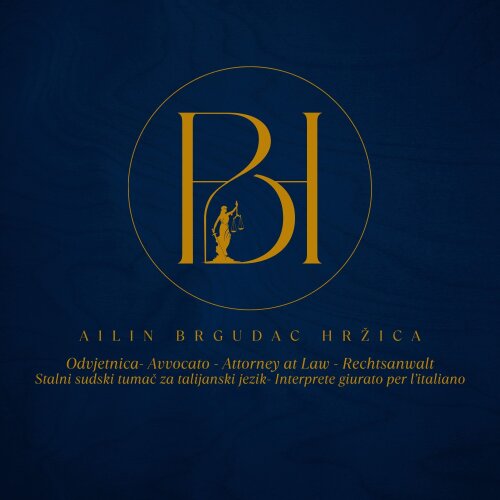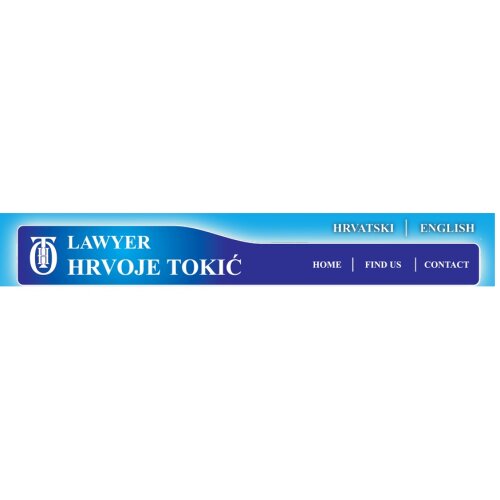Best Structured Finance Lawyers in Croatia
Share your needs with us, get contacted by law firms.
Free. Takes 2 min.
Or refine your search by selecting a city:
List of the best lawyers in Croatia
About Structured Finance Law in Croatia
Structured finance refers to complex financial transactions and instruments tailored to meet the specific needs of borrowers, often beyond traditional loans. These can include securitizations, syndicated loans, project finance, collateralized debt obligations, and asset-backed securities. In Croatia, the structured finance market is developing, influenced by EU directives and local regulations. Croatian law plays a vital role in structuring such financial products, ensuring compliance, risk management, and protecting the interests of all parties involved. The legal framework is especially important given the involvement of multiple stakeholders, complex transaction structures, and the interplay with both local and EU financial regulations.
Why You May Need a Lawyer
Navigating structured finance transactions in Croatia often requires specialized legal support due to their complexity. Here are some common scenarios where legal assistance is essential:
- Structuring or participating in syndicated loans or project finance.
- Securitizing assets or purchasing asset-backed securities.
- Complying with Croatian and EU financial regulations.
- Drafting detailed transactional documents and contracts.
- Advising on tax implications and cross-border transactions.
- Mitigating risks and managing defaults or restructurings.
- Representing clients in disputes or negotiations related to structured finance deals.
- Due diligence on counterparties and collateral.
- Advising on regulatory changes affecting structured finance instruments.
Given these complexities, a lawyer experienced in Croatian structured finance law can provide valuable guidance, helping you avoid risks, ensure compliance, and optimize transaction outcomes.
Local Laws Overview
Structured finance in Croatia operates under a combination of national laws, EU directives, and international guidelines. The most relevant pieces of legislation include:
- The Croatian Capital Market Act which regulates securities, public offerings, and disclosure obligations.
- The Credit Institutions Act governing banking practices and credit facilities.
- The Bankruptcy Law, covering insolvency and restructuring procedures.
- EU regulations such as the Securitization Regulation, which is directly applicable in Croatia.
- Taxation laws influencing the structuring of finance deals and returns.
Regulatory bodies like the Croatian Financial Services Supervisory Agency (HANFA) and the Croatian National Bank oversee the enforcement of these laws. Croatia’s legal infrastructure emphasizes transparency, disclosure, and investor protection, but legal requirements can be highly technical, making expert advice vital.
Frequently Asked Questions
What is structured finance, and how is it used in Croatia?
Structured finance consists of advanced financial instruments used to manage risk and tailor funding. In Croatia, it’s often used for large corporate projects, real estate development, infrastructure, and asset acquisition.
Do I need a lawyer to engage in a structured finance transaction in Croatia?
Yes, due to complex regulations, contractual arrangements, and potential cross-border elements, legal advice is strongly recommended.
Which Croatian regulatory bodies oversee structured finance?
Key regulators include the Croatian Financial Services Supervisory Agency (HANFA) and the Croatian National Bank.
Are there restrictions on foreign investors in structured finance transactions?
While Croatia is open to foreign investment, certain deals may require notification or approval by regulatory authorities, especially where strategic assets are concerned.
How are securitizations regulated in Croatia?
Securitizations are primarily governed by the Capital Market Act and EU regulations, with strict disclosure and operational requirements.
What tax considerations should I be aware of?
Structured finance arrangements may trigger specific VAT and withholding tax implications. Consulting a tax expert alongside your lawyer is advisable.
How are cross-border structured finance transactions handled?
These transactions must comply with both Croatian and EU laws. Coordination with foreign legal counsel is often required.
What happens if a borrower defaults?
Loan agreements dictate remedies, but Croatian bankruptcy and restructuring laws will also apply, potentially affecting enforcement and recovery.
Can structured finance be used for public infrastructure projects?
Yes, project finance and public-private partnership models are increasingly employed for Croatian infrastructure developments.
What due diligence is necessary before entering a structured finance deal?
Thorough legal, financial, and tax due diligence should be performed on assets, counterparties, and the structure itself to mitigate risk.
Additional Resources
If you wish to learn more about structured finance in Croatia or require assistance, the following organizations may provide helpful information:
- Croatian Financial Services Supervisory Agency (HANFA) - Supervises capital markets and licensing.
- Croatian National Bank - Regulator for banking operations and credit institutions.
- Ministry of Finance of the Republic of Croatia - Sets financial policy and oversees financial regulation.
- Croatian Chamber of Economy - Provides business and investment support, including financial services.
- Local and international law firms with expertise in structured finance and capital markets.
Next Steps
If you think you need legal assistance with a structured finance matter in Croatia, consider the following steps:
- Identify the nature and scope of your intended transaction or concern.
- Gather relevant documentation such as financial statements, contracts, and any correspondence.
- Contact a Croatian lawyer or law firm specializing in structured finance and financial regulation.
- Prepare a list of questions or issues you wish to discuss during your consultation.
- Consider engaging a multidisciplinary team including tax, accounting, and financial advisors if your case is complex.
- Monitor changes in Croatian and EU financial regulations that could impact your transaction.
Taking a proactive approach and seeking professional legal advice early in the process can help you manage risks, comply with complex regulations, and increase the likelihood of a successful outcome.
Lawzana helps you find the best lawyers and law firms in Croatia through a curated and pre-screened list of qualified legal professionals. Our platform offers rankings and detailed profiles of attorneys and law firms, allowing you to compare based on practice areas, including Structured Finance, experience, and client feedback.
Each profile includes a description of the firm's areas of practice, client reviews, team members and partners, year of establishment, spoken languages, office locations, contact information, social media presence, and any published articles or resources. Most firms on our platform speak English and are experienced in both local and international legal matters.
Get a quote from top-rated law firms in Croatia — quickly, securely, and without unnecessary hassle.
Disclaimer:
The information provided on this page is for general informational purposes only and does not constitute legal advice. While we strive to ensure the accuracy and relevance of the content, legal information may change over time, and interpretations of the law can vary. You should always consult with a qualified legal professional for advice specific to your situation.
We disclaim all liability for actions taken or not taken based on the content of this page. If you believe any information is incorrect or outdated, please contact us, and we will review and update it where appropriate.
Browse structured finance law firms by city in Croatia
Refine your search by selecting a city.

















